Abiratas 250
Abiratas 250 mg is an effective medication used primarily in the treatment of advanced prostate cancer. It works by inhibiting the action of androgen hormones, which can promote the growth of cancer cells.
This medication helps to lower testosterone levels, preventing further cancer progression. It is typically used in combination with other treatments, such as chemotherapy, for optimal results.
Abiratas 250 mg is generally well-tolerated but should only be taken under the guidance of a healthcare provider to ensure safety and efficacy.
How to use it ?
Abiratas 250 mg is typically taken orally as a tablet once a day, with or without food. The dosage is generally prescribed by your doctor based on your individual condition and treatment response. It is important to swallow the tablet whole with a glass of water, without breaking or chewing it.
For optimal results, try to take it at the same time each day to maintain consistency. Never alter your dosage without consulting your healthcare provider, and do not stop the medication unless directed to do so.
How dose it works ?
Abiratas 250 mg works by blocking the action of androgens (male hormones, including testosterone) in the body. These hormones can stimulate the growth of prostate cancer cells. Abiratas, also known as abiraterone acetate, inhibits an enzyme called CYP17, which is involved in producing testosterone in the body.
By reducing the levels of testosterone and other androgens, Abiratas effectively slows the growth and spread of prostate cancer cells, particularly in cases where the cancer is resistant to other treatments. This helps manage symptoms and prolongs survival in advanced prostate cancer patients.
Uses
Abiratas 250 mg is primarily used in the treatment of metastatic castration-resistant prostate cancer (mCRPC), which is a type of prostate cancer that continues to grow despite low testosterone levels. It is prescribed for patients who have either failed chemotherapy or who are not candidates for chemotherapy.
Abiratas works by inhibiting the production of testosterone, which fuels the growth of prostate cancer cells. Additionally, it can be used in combination with prednisone to reduce inflammation and improve the drug’s effectiveness in slowing down cancer progression.
Doses
The recommended dose of Abiratas 250 mg is typically one tablet taken orally once a day, in combination with prednisone (5 mg twice a day). It is essential to take Abiratas on an empty stomach, at least one hour before or two hours after meals. The dose may be adjusted based on the patient’s response, tolerability, or specific medical conditions.
Benefits
Abiratas 250 mg offers several benefits in the treatment of metastatic castration-resistant prostate cancer (mCRPC). Key benefits include:
- Effective Cancer Control: It helps slow the progression of prostate cancer by inhibiting testosterone production, which fuels cancer cell growth.
- Improved Survival Rates: Abiratas has been shown to extend overall survival in patients with advanced prostate cancer.
- Reduced Cancer-Related Symptoms: It can help alleviate symptoms such as bone pain and fatigue associated with prostate cancer.
- Well-Tolerated: When taken with prednisone, it offers better tolerance and efficacy in managing mCRPC.
Side Effects
- Fatigue: Common and may affect daily activities.
- Hot Flashes: Sudden feelings of warmth, especially in the upper body.
- Joint and Muscle Pain: Discomfort in muscles or joints may occur.
- High Blood Pressure: Regular monitoring is essential.
- Nausea and Vomiting: Some individuals may experience gastrointestinal discomfort.
- Decreased Appetite: Can lead to unintentional weight loss.
- Liver Problems: Liver function tests may be needed.
- Swelling: Fluid retention may cause swelling in the legs or arms.
Precautions for Abiratas 250 mg:
- Liver Function: Monitor liver health regularly as it can impact liver enzymes.
- Pregnancy and Breastfeeding: Not recommended during pregnancy or breastfeeding.
- Heart Health: Caution is advised for those with heart disease or high blood pressure.
- Other Medications: Discuss any other medications to avoid harmful interactions.
- Allergies: Avoid if allergic to Abiratas or its components.
- Bone Health: Regular bone density checks are advised to prevent bone-related issues.
Frequently Asked Questions
What is Abiratas 250 mg used for?
Abiratas 250 mg is used to treat certain cancers, including prostate cancer, by inhibiting the action of androgen hormones which fuel the growth of cancer cells.
Can Abiratas 250 mg be used in combination with other medications?
Yes, but only under the supervision of a healthcare provider. Abiratas may interact with other drugs, so it’s essential to inform your doctor about any other medications you are taking.
Is Abiratas 250 mg safe for long-term use?
Long-term use should be monitored by a healthcare provider, as it may cause side effects like liver toxicity or bone density loss.
What should I do if I miss a dose of Abiratas 250 mg?
If you miss a dose, take it as soon as possible, but if it’s almost time for your next dose, skip the missed dose. Do not take two doses at once.
Are there any dietary restrictions while using Abiratas 250 mg?
There are no specific dietary restrictions, but it’s advised to follow a balanced diet and maintain hydration throughout treatment. Always consult your doctor for personalized recommendations.
Can Abiratas 250 mg be used in children?
No, Abiratas 250 mg is generally not recommended for children. It should only be used under a healthcare provider’s guidance for the appropriate conditions.
What should I do if I experience side effects?
Contact your healthcare provider immediately if you experience any unusual or severe side effects, including liver-related issues or heart problems.
Conclusion
Abiratas 250 mg is a potent treatment for certain types of cancer, primarily prostate cancer, by targeting hormone-driven growth. While effective, it should be used under strict medical supervision due to potential side effects.
Regular monitoring and adherence to prescribed doses are crucial to ensure optimal treatment outcomes and minimize risks.

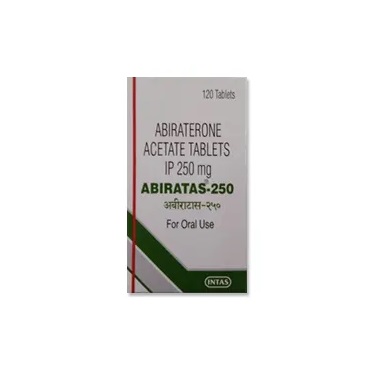
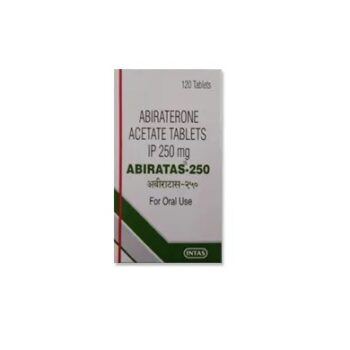
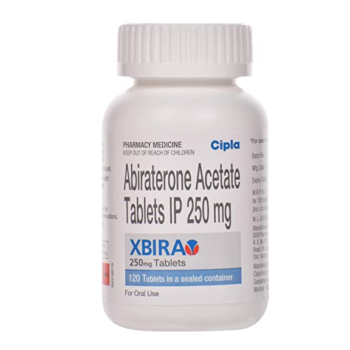
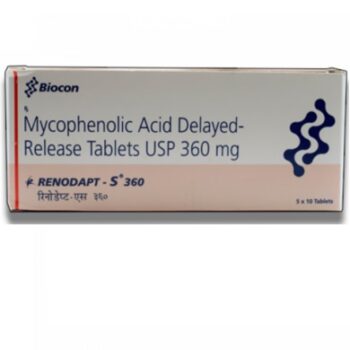
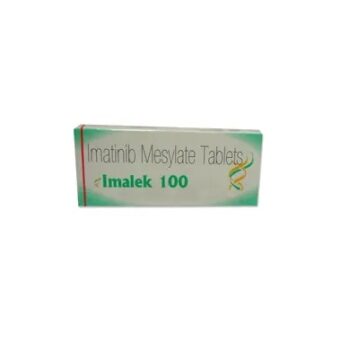
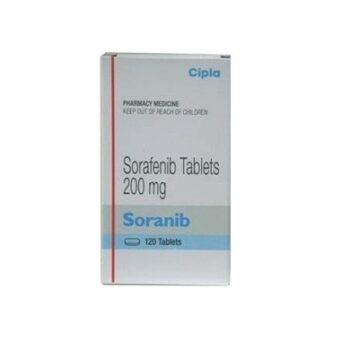
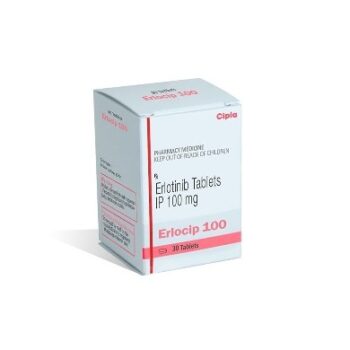
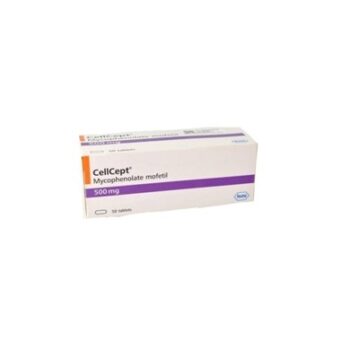


Reviews
There are no reviews yet.